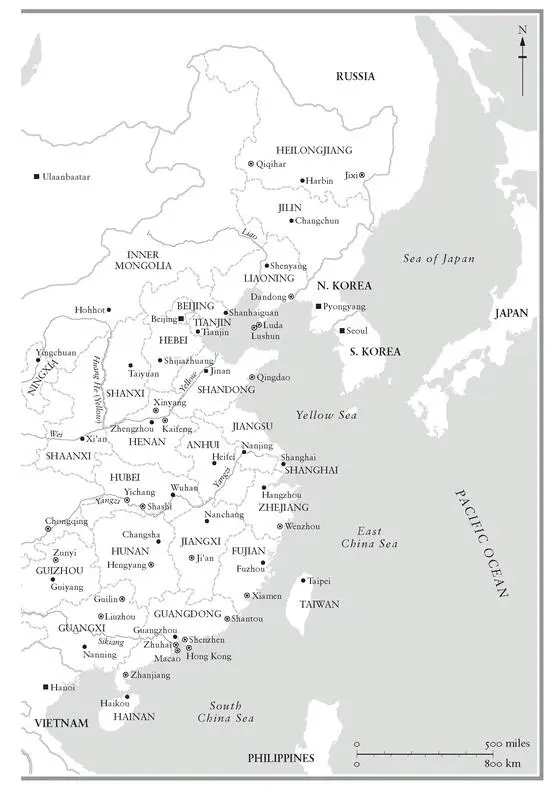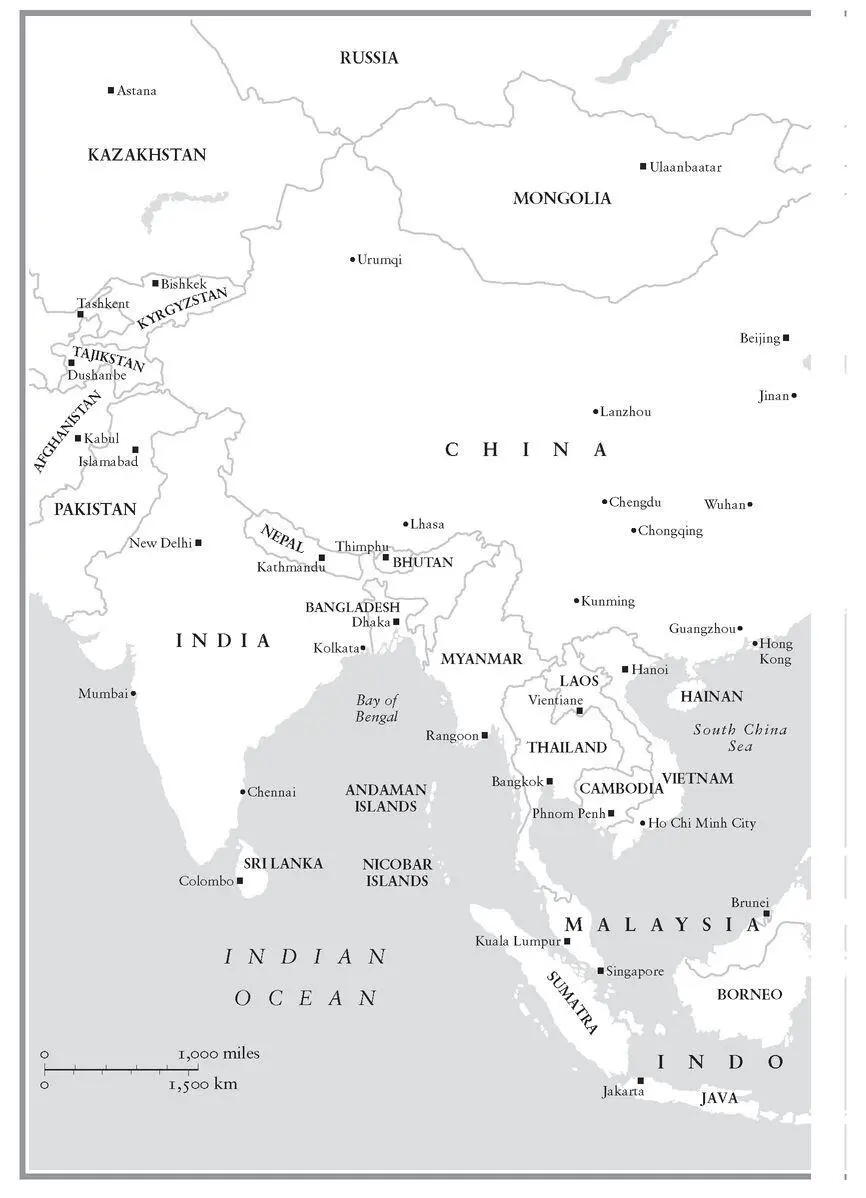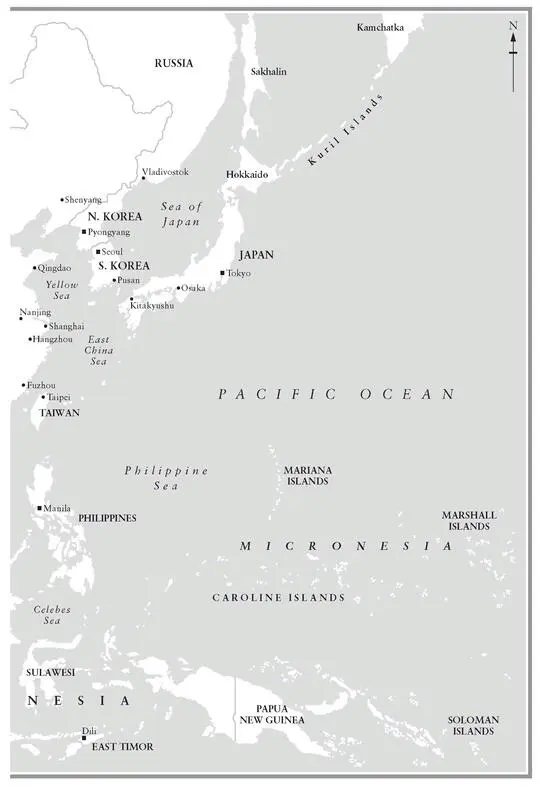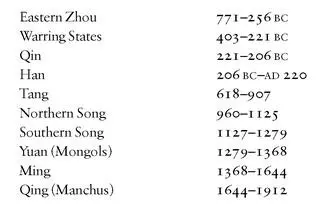I have been blessed with an excellent editor in Stuart Proffitt. He has been enormously conscientious and painstaking in his editing, for which I am extremely grateful. Perhaps most of all, I am indebted to Stuart for his sensitivity towards me after my wife’s death, when he realized that it was impossible for me to work on the book; his timing was perfect two years later when he gently broached the question again with me. I would like to thank Penguin for their patience and forbearance with an author who took far longer to complete his book than was originally intended. I would like to thank Peter Carson for originally commissioning the book, Phillip Birch for his assistance on numerous occasions, Jane Birdsell for her conscientiousness, patience and good humour during the copy-editing, Samantha Borland for taking admirable care of the maps, tables and figures, and Richard Duguid for overseeing the production of the book and making sure that it somehow managed to meet the prescribed publication date.
I would like to thank Cristina Pilien, who helped to look after our son Ravi when we were in Hong Kong and has continued to do so in London ever since, for her extraordinary kindness, loyalty and devotion. As I write, Ravi and I are very proud that she is studying Chinese at Beijing University.
My greatest debt of all is to Ravi, our son, who is now ten years old and who was just sixteen months when Hari died. It has been an unspeakably painful, sad and cruel decade but together we have found a way to play, live and grow. Ravi, you have been my reason, the source of such pride and pleasure. Thank you for putting up with all those endless days and months when Daddy has been, in your words, in ‘his prison’, otherwise known as my study. What has kept me going are all the times in between that I have spent with you, messing about, enjoying your company, listening to you play the violin and taking delight in your ever-expanding range of interests and gifts: Mummy would have been thrilled. This book is for you but, as you know, it is dedicated to the memory of your mother who I loved beyond all reason or belief. She would have been so proud of us for having found the will and fortitude to complete the book despite the cruel hand of Fate. She cannot share this moment of pleasure with us. The aching emptiness of her absence stills any sense of elation.

*

Map 1. China

*

Map 2. East Asia
Note on Transliteration, Names and Currency
The Pinyin system of transliteration, adopted in the People’s Republic of China in the 1950s and now generally used worldwide, has been employed in this book, with the exception of some names which are most familiar in the older Wade-Giles system (for example, Sun Yat-sen and Chiang Kai-shek).
Chinese names are generally written in English style, with the family name first, except in those few cases where they are usually written in Western form with the family name second. Japanese names vary, with the family name sometimes written first (as in Japan), but where they are usually written in English with the family name second, as is often the practice, the same approach has been followed.
The Chinese currency, often known as the yuan, is referred to in this book as the renminbi.
Major Periods in Imperial China

1. The Changing of the Guard
Since 1945 the United States has been the world’s dominant power. Even during the Cold War its economy was far more advanced than, and more than twice as large as, that of the Soviet Union, while its military capability and technological sophistication were much superior. [1] [1] John J. Mearsheimer, The Tragedy of Great Power Politics (New York: Norton, 2001), p. 74.
Following the Second World War, the US was the prime mover in the creation of a range of multinational and global institutions, such as the United Nations, the International Monetary Fund and NATO, which were testament to its new-found global power and authority. The collapse of the Soviet Union in 1991 greatly enhanced America ’s pre-eminent position, eliminating its main adversary and resulting in the territories and countries of the former Soviet bloc opening their markets and turning in many cases to the US for aid and support. Never before, not even in the heyday of the British Empire, had a nation’s power enjoyed such a wide reach. The dollar became the world’s preferred currency, with most trade being conducted in it and most reserves held in it. The US dominated all the key global institutions bar the UN, and enjoyed a military presence in every part of the world. Its global position seemed unassailable, and at the turn of the millennium terms like ‘hyperpower’ and ‘unipolarity’ were coined to describe what appeared to be a new and unique form of power.
The baton of pre-eminence, before being passed to the United States, had been held by Europe, especially the major European nations like Britain, France and Germany, and previously, to a much lesser extent, Spain, Portugal and the Netherlands. From the beginning of Britain ’s Industrial Revolution in the late eighteenth century until the mid twentieth century, Europe was to shape global history in a most profound manner. The engine of Europe ’s dynamism was industrialization and its mode of expansion colonial conquest. Even as Europe’s position began to decline after the First World War, and precipitously after 1945, the fact that America, the new rising power, was a product of European civilization served as a source of empathy and affinity between the Old World and the New World, giving rise to ties which found expression in the idea of the West [2] [2] Alastair Bonnett, The Idea of the West: Culture, Politics and History (London: Palgrave Macmillan, 2004), Chapters 1–2, 6.
while serving to mitigate the effects of latent imperial rivalry between Britain and the United States. For over two centuries the West, first in the form of Europe and subsequently the United States, has dominated the world.
We are now witnessing an historic change which, though still relatively in its infancy, is destined to transform the world. The developed world — which for over a century has meant the West (namely, the United States, Canada, Western Europe, Australia and New Zealand) plus Japan — is rapidly being overhauled in terms of economic size by the developing world. [3] [3] We are already living in what is, in economic terms, a multipolar world; Pam Woodall, ‘The New Titans’, survey, The Economist , 16 September 2006. Also, Brian Beedham, ‘Who Are We, Who Are They?’, survey, pp. 14–16, The Economist , 29 July 1999.
In 2001 the developed countries accounted for just over half the world’s GDP, compared with around 60 per cent in 1973. It will be a long time, of course, before even the most advanced of the developing countries acquires the economic and technological sophistication of the developed, but because they collectively account for the overwhelming majority of the world’s population and their economic growth rate has been rather greater than that of the developed world, their rise has already resulted in a significant shift in the balance of global economic power. There have been several contemporary illustrations of this realignment. After declining for over two decades, commodity prices began to increase around the turn of the century, driven by buoyant economic growth in the developing world, above all from China, until the onset of a global recession reversed this trend, at least in the short run. [4] [4] Martin Wolf, ‘Life in a Tough World of High Commodity Prices’, Financial Times , 4 March 2008; Jing Ulrich, ‘ China Holds the Key to Food Prices’, Financial Times , 7 November 2007.
Meanwhile, the stellar economic performance of the East Asian economies, with their resulting huge trade surpluses, has enormously swollen their foreign exchange reserves. A proportion of these have been invested, notably in the case of China and Singapore, in state-controlled sovereign wealth funds whose purpose is to seek profitable investments in other countries, including the West. Commodity-producing countries, notably the oil-rich states in the Middle East, have similarly invested part of their newly expanded income in such funds. Sovereign wealth funds acquired powerful new leverage as a result of the credit crunch, commanding resources which the major Western financial institutions palpably lacked. [5] [5] ‘Sharpened Focus on Sovereign Wealth Funds,’ International Herald Tribune , 21 January 2008; ‘ China ’s Stake in BP’, Financial Times , 15 April, 2008.
The meltdown of some of Wall Street’s largest financial institutions in September 2008 underlined the shift in economic power from the West, with some of the fallen giants seeking support from sovereign wealth funds and the US government stepping in to save the mortgage titans Freddie Mac and Fannie Mae partly in order to reassure countries like China, which had invested huge sums of money in them: if they had withdrawn these, it would almost certainly have precipitated a collapse in the value of the dollar. The financial crisis has graphically illustrated the disparity between an East Asia cash-rich from decades of surpluses and a United States cash-poor following many years of deficits.
Читать дальше

















